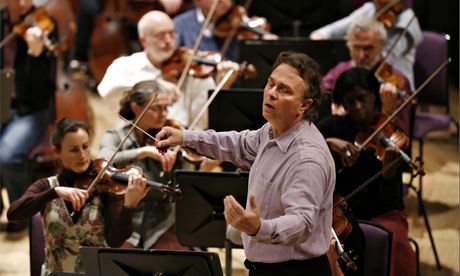
The lack of opportunities to hear Brahms's funeral anthem Nänie is not that difficult to fathom. It makes rigorous demands of a huge choir, yet is barely 15 minutes in length, is dedicated to a German artist few will recognise and has an English title – "Threnody", or "Dirge" – that seems unlikely to inspire a rush at the box office.
Yet Brahms's setting of Schiller's sonnet, composed in memory of his friend the painter Anselm Feuerbach, is one of the composer's most perfectly realised miniature masterpieces. Schiller's poem is dense with classical allusion, though the Hallé Choir clearly communicated the work's profound resignation. If the German Requiem was Brahms's grandest public statement of mortality, this was his most intimate and personal equivalent.
Mahler's Ninth Symphony is a threnody of a different kind, for which commentators have come up with any number of interpretations. Arnold Schoenberg detected an unsettling, desensitised quality; the American essayist Lewis Thomas suggested that Mahler's music presaged the annihilation of a nuclear strike. Yet all one can confidently claim to have heard from the Hallé's performance was an outstandingly matched conductor and ensemble giving profound expression to some of Mahler's most ethereal and elegiac music.
Schoenberg was surely correct in noting a certain coolness to the symphony – the famous falling motif of the first movement was derived from Beethoven's "Farewell" theme, though when a muted trumpet takes up the figure you can almost hear how it connects to Miles Davis's Kind of Blue. There's verve and energy as well – the inner movements came with the brash intrusion of a drunk arriving at a wake – but it was the long, slow expiration of the final movement that stunned the hall into silence. As the pulse of the symphony gradually subsided, Mark Elder oversaw the leave-taking with the tact and sensitivity of a doctor identifying the most humane moment to switch off the life-support machine.
• The programme is partially repeated at the Royal Concert Hall, Nottingham, on 27 May. Box office: 0115 989 5555. Tickets: halle.co.uk.

